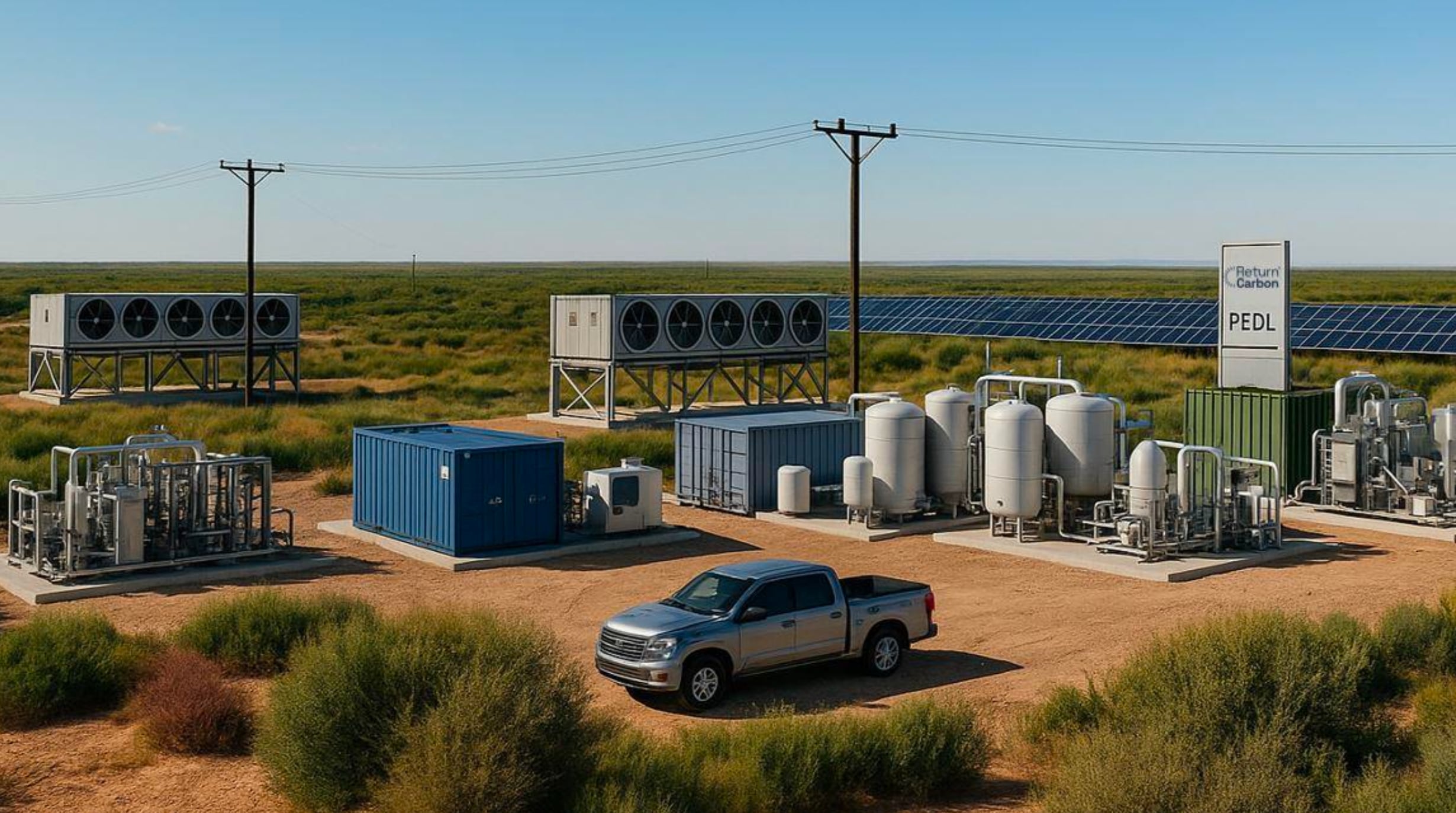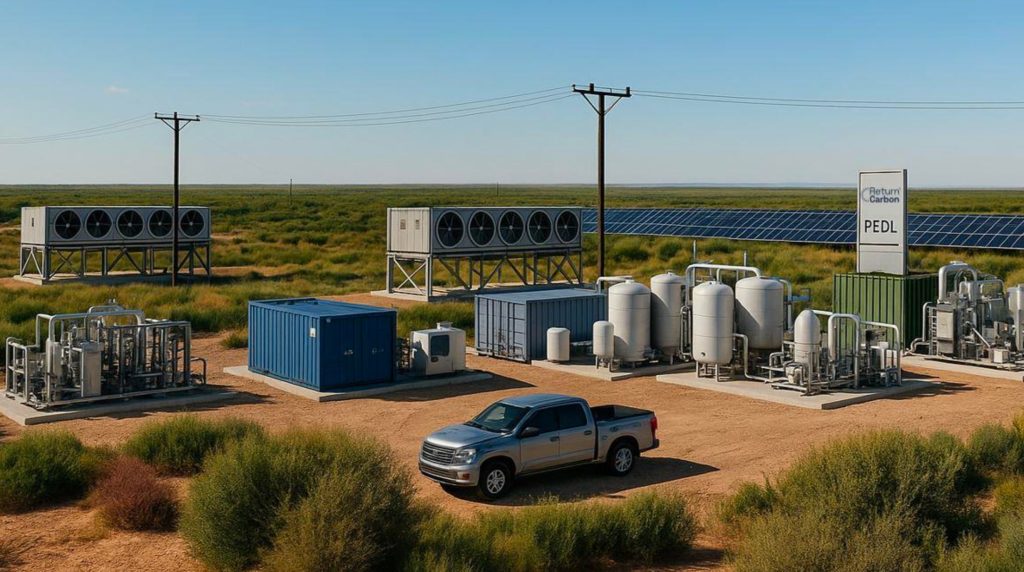The Permian Integrated Energy System (PIES) is a flagship initiative of PEDL, a nonprofit consortium launched in 2023 to accelerate innovation across energy, workforce and economic development in the Permian Basin. Centered on a 320-acre site in Yoakum County, Texas, PIES is designed to integrate renewables, carbon removal, water reuse and other advanced energy technologies into a unified system – a model for scalable, replicable energy infrastructure. When energy processes are integrated, they use natural resources more efficiently and produce cleaner energy.
“PEDL was conceived to bridge innovation and implementation,” said Dr. Derek Adams, Managing Director of PEDL’s PIES initiative. “By partnering with Return Carbon, we’re creating the proving ground for DAC technologies that can transform the energy landscape of the Permian Basin and beyond.”
PEDL is more than just a technology lab and spans workforce training, economic development and community resilience, ensuring that the benefits of energy innovation flow to the people and places that make it possible.
The Trinity Campus is designed to capture and store approximately 10,000 tons of CO2 per year during its initial phase, serving as a foundation for large-scale DAC deployment in the Permian Basin. The project will follow a phased development approach, allowing proven technologies from the Trinity Campus to expand seamlessly to commercial-scale facilities. The second-phase of the project will be designed to capture between 100,000 and 500,000 tons of CO2 annually, integrating lessons learned from the initial phase to advance efficient, verifiable carbon removal at scale.
“The Trinity Campus is where the next generation of carbon capture technologies will prove themselves in the field,” said Martijn Verwoerd, Managing Director of Return Carbon. “The market is moving from concepts to commercial performance, and the Permian Basin, in combination with the Texas climate, offers the perfect foundation to validate which technologies are truly ready to scale. This is how we accelerate real, measurable impact.”
PEDL and Roosevelt Resources are collaborating to support operations at the Trinity Campus, including the integration of power and pilot-scale water treatment systems to enable testing and demonstration of emerging technologies. Roosevelt Resources is also advancing an innovative enhanced oil recovery (EOR) and carbon sequestration initiative, which is anticipated to serve as the initial storage pathway for captured CO2.
By establishing standardised and independently verified testing conditions, the Trinity Campus and its partners are building confidence in DAC deployment, de-risking early technologies, enabling investor and buyer trust, and accelerating commercialisation.
“The Trinity Campus embodies the innovation the Permian Basin needs to stay at the forefront of global energy,” said Coleman White, who leads commercial development and project origination at Return Carbon and is a West Texas native. “By pairing new technology with the region’s deep energy expertise, we’re building a resilient and diversified revenue stream that ensures the Permian continues to lead for generations to come.” 
Illustration of the Trinity Campus facility

